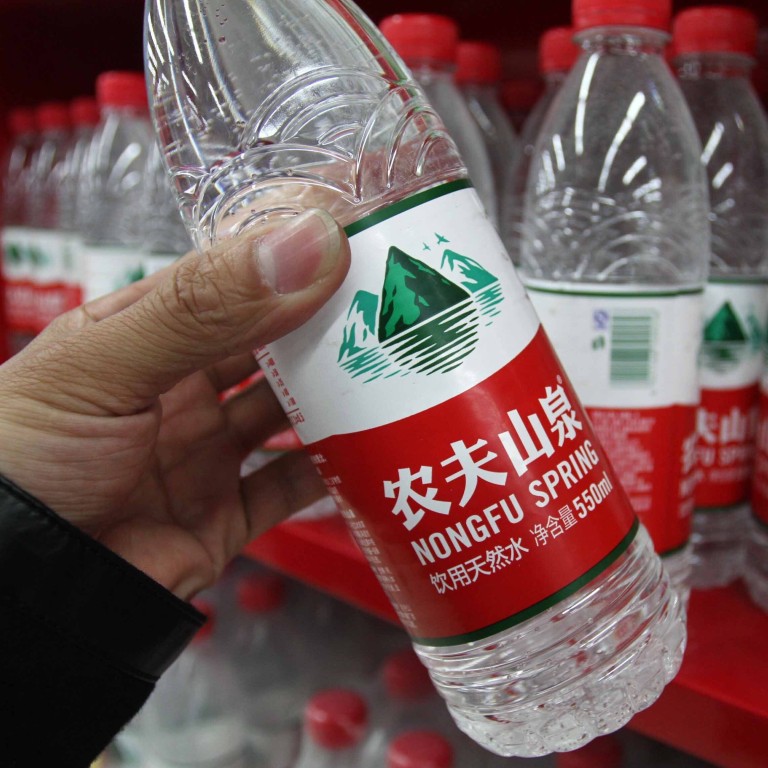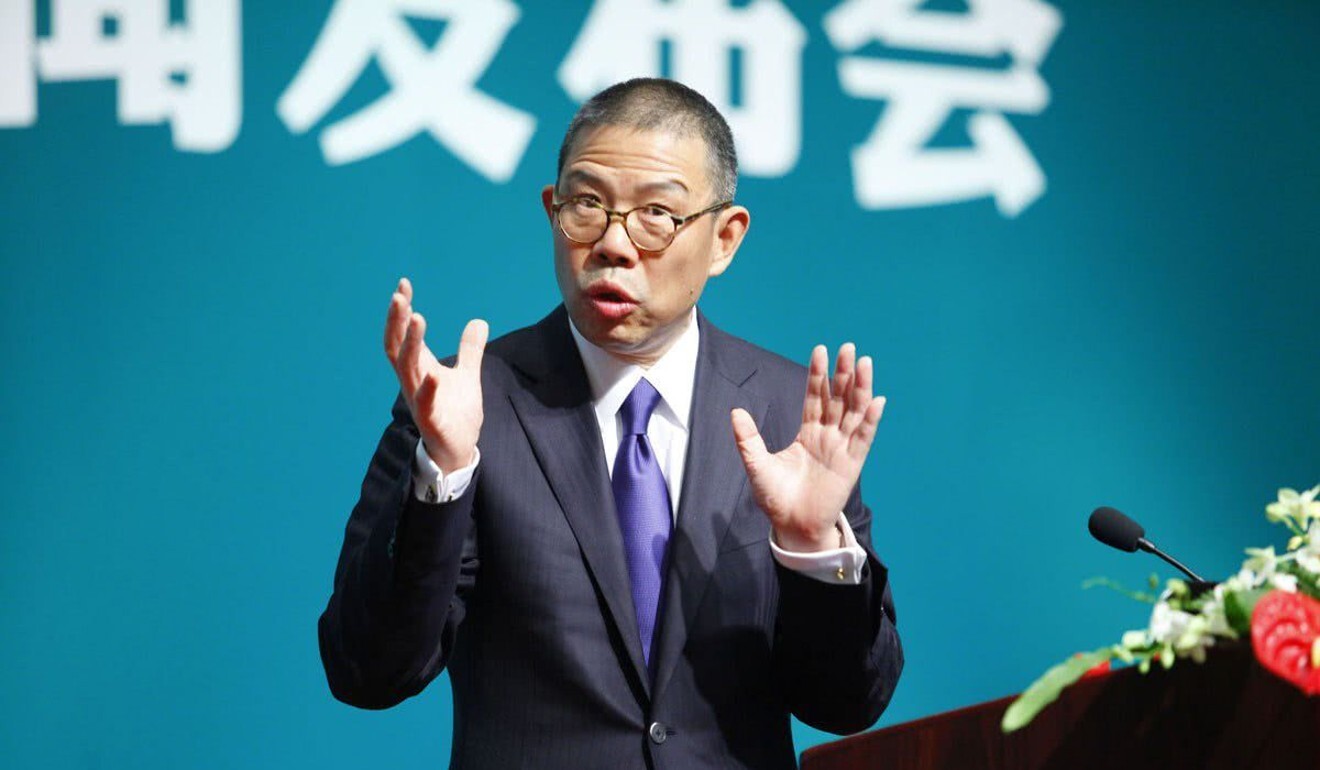
Will Chinese bottled water giant Nongfu Spring’s Hong Kong IPO lead to more success for its low profile billionaire founder?
- Nongfu Spring is seeking up to US$1 billion in a Hong Kong initial public offering
- Zhong Shanshan, 65, holds 87 per cent of the company and is currently the 29th wealthiest person in China
Zhong, 65, is currently estimated to be worth US$11.6 billion, and is the 29th wealthiest person in China and the 160th richest person globally, according to Forbes. He holds a 87 per cent stake in Nongfu Spring, and its listing is expected to push him further up the ranks of China’s and the world’s richest people.
The company announced its initial public offering (IPO) on Tuesday at an indicative price of HK$19.50 (US$2.50) to HK$21.50 per share, which means it could raise up to HK$8.35 billion at the top end of the range, according to its filing to the stock exchange.
Nongfu Spring will sell about 388.2 million shares, which represent 3.5 per cent of its outstanding share capital. It has given an overallotment option to its underwriters, who can sell an additional 58.2 million shares in case of strong demand from investors, according to a term sheet seen by the South China Morning Post.
The listing’s bookrunners include Citic Securities, Citi, CICC and Morgan Stanley, and the latter two are also joint sponsors of the deal. Its final offer price is expected on Friday and trading on the main board will commence on September 8.

Nongfu Spring has secured a combined US$320 million investment from five cornerstone investors, who in aggregate have agreed to subscribe to about 30 per cent of its international placement tranche, assuming its IPO shares are priced at the high-end of their indicative range.
These investors include Singaporean sovereign fund GIC and asset managers such as Fidelity International, Coatue and ORIX Asia Consumer Trend Investment. The state-backed China Structural Reform Fund, which facilitates state-owned enterprise reforms on the mainland, and the CCT-Citic Agriculture Fund have also subscribed.
Hong Kong sees one of its busiest IPO days ever; two stocks shoot up 150 per cent
Shares of Beijing Wantai, which makes Covid-19 test kits, have skyrocketed 24 times to 206.03 yuan from its IPO price of 8.75 yuan, bolstering the firm’s market value to 89 billion yuan. Zhong’s stake in the company – some of it held indirectly through another entity he controls – was worth about 67 billion yuan by Monday’s market close.
Known as a “lone wolf” in Chinese business circles, Zhong has kept a low profile and made few public appearances, according to mainland Chinese media reports. He does not participate in entrepreneurs’ clubs and has not signed up for China’s legislative body or political consultation groups, as many successful mainland businessmen do.
His early life is marked by dramatic ups and downs. Born into a wealthy family in eastern China’s Hangzhou city in 1954, Zhong dropped out of school in fifth grade when Mao Zedong’s Cultural Revolution was sweeping across the country. His parents were purged, and he worked as an apprentice to masons and carpenters for a decade.
Hong Kong, Shanghai locked in tight race to be 2020’s top IPO venue for Chinese issuers
At 23, he started applying for college after China restored the national college entrance exam in the aftermath of the movement. It took him two attempts before getting into the Zhejiang Radio and Television University. He became a reporter at the local Zhejiang Daily newspaper upon graduation.
Five years of reporting on and interviewing entrepreneurs made him realise that huge business opportunities were brewing in China. The government had just started rolling out reforms to transform the economy from a completely centrally planned one to a more liberal and market-driven one.
Zhong quit his job and went to Hainan, the tropical island in southern China seen as one of the pioneers of market reforms. Several of the projects that he started, including running a newspaper, planting mushrooms and distributing bottled water, flopped, until he discovered a huge demand for health supplements.
Shanghai overtakes Hong Kong as top IPO destination, but mega deals will shake up full-year rankings
In 1993, he developed a nutritious pill, which became popular across the country. He earned his first 10 million yuan from this product. Zhong went on to develop a range of snacks and health foods and turned them into well-known brands.
He founded Nongfu Spring’s predecessor at Qiandao Lake, also known as the Thousand Islands Lake, in Zhejiang in 1996.
Additional reporting by Georgina Lee

